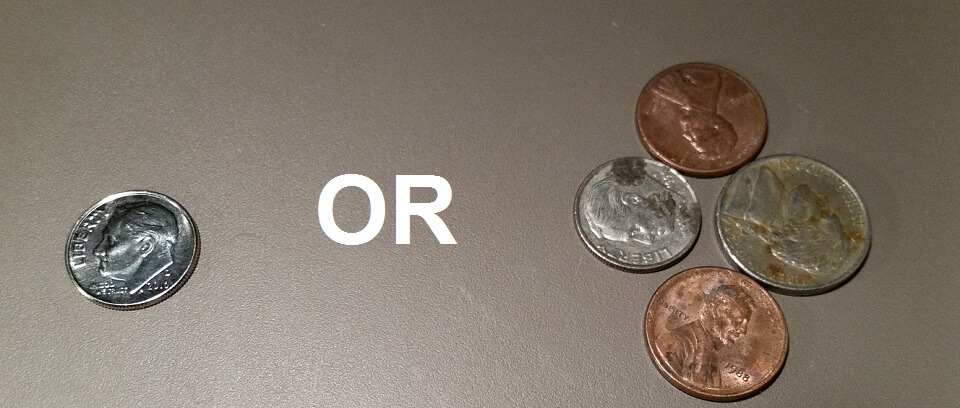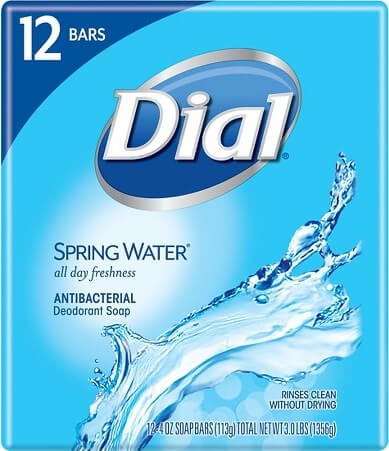Fuel for Thought

Shining Like A New Dime or Just As Dirty As Old Money?
For years antibacterial soaps has been available and widely used. Recently the FDA has banned 19 ingredients commonly found in antibacterial soaps. The most common being Triclosan and Triclocarban. The FDA claims there is no evidence that OTC (over the counter) soaps containing these ingredients are any better at preventing illnesses than just washing with plain soap and water. Antibacterial soaps used by hospitals, schools, nursing homes, etc. will still be available for use. This ban does not include antibacterial hand sanitizers or wipes that do not require water to rinse. The ban does not include commercial or industrial antibacterial soaps. The FDA’s ban is a result of insufficient evidence to support the antibacterial claims made by the manufacturers.
The 19 banned ingredients are: 
-
Cloflucarban
-
Fluorosalan
-
Hexachlorophene
-
Hexylresorcinol
-
Iodophors, which are iodine-containing ingredients
-
Iodine complex, which is ammonium ether sulfate and polyoxyethylene sorbitan monolaurate
-
Iodine complex of phosphate ester of alkylaryloxy polyethylene glycol
-
Nonylphenoxypoly, or ethyleneoxy, ethanoliodine
-
Poloxamer, an iodine complex of Povidone-iodine 5 percent to 10 percent
-
Undecoylium chloride iodine complex
-
Methylbenzethonium chloride
-
Phenol greater than 1.5 percent
-
Phenol less than 1.5 percent
-
Secondary amyltricresols
-
Sodium oxychlorosene
-
Tribromsalan

-
Triclocarban
-
Triclosan
-
Triple dye
Worth noting, the FDA did find that Triclosan, when tested in a toothpaste in 1997, was found to help prevent gingivitis. It seems contradictory to their claims of daily use of Triclosan in antibacterial soaps being harmful to humans, when they found using it in toothpaste, which most people would use 1 or 2 or 3 times a day was beneficial. Perhaps the benefit outweighed the risks.
The FDA has given companies making these antibacterial products with these ingredients one year to remove them and/or change the products to meet the new ruling. Some have already stopped making the soaps with the added ingredients while others are transitioning their products.
The FDA’s rule doesn’t apply to three chemicals (benzalkonium chloride, benzethonium chloride and chloroxylenol). Manufacturers are developing and plan to submit new safety and effectiveness data for these ingredients to the FDA for approval.
While the debate, and lawsuits, go on over the effectiveness of these liquid soaps, body washes, gel soaps, foam soaps and bar soaps labeled as antibacterial, it is GRAS (Generally Recognized As Safe) to use hand sanitizers and wipes, especially those containing alcohol.
The FDA only banned these ingredients for use in antibacterial soaps, however, there are many other products containing these ingredients. Of the banned ingredients,Triclosan and Triclocarban are the most widely used. Triclosan, in particular, can be found in many everyday products such as clothing, furniture, kitchenware and and even toys to prevent bacterial contamination.
I have used “antibacterial” soap for years. As many over the road truck drivers probably use “antibacterial” products to help protect them from all that they may come in contact with. If the FDA is correct about the soaps, maybe it was a false sense of security, but for now at least, it looks like you can continue to use hand sanitizers and know that at least some of the germs you come in contact with will be eliminated to help keep you healthier out on the road.
See you down the road,
Greg
To keep the body in good health is a duty… otherwise we shall not be able to keep our mind strong and clear.
- Buddha
